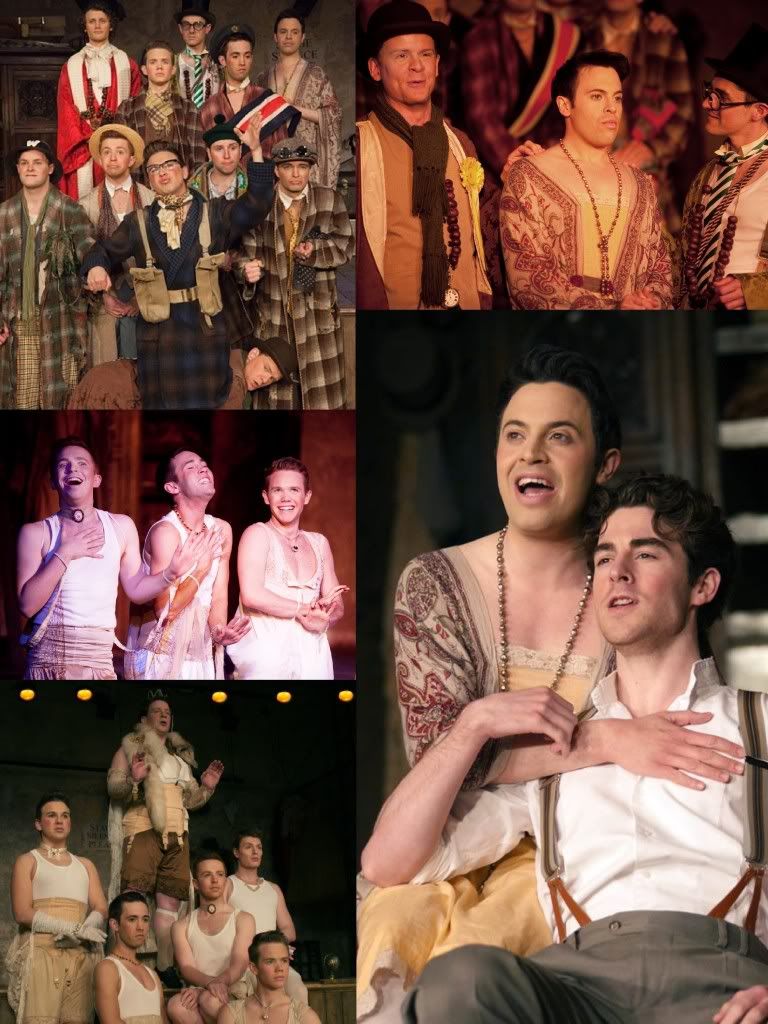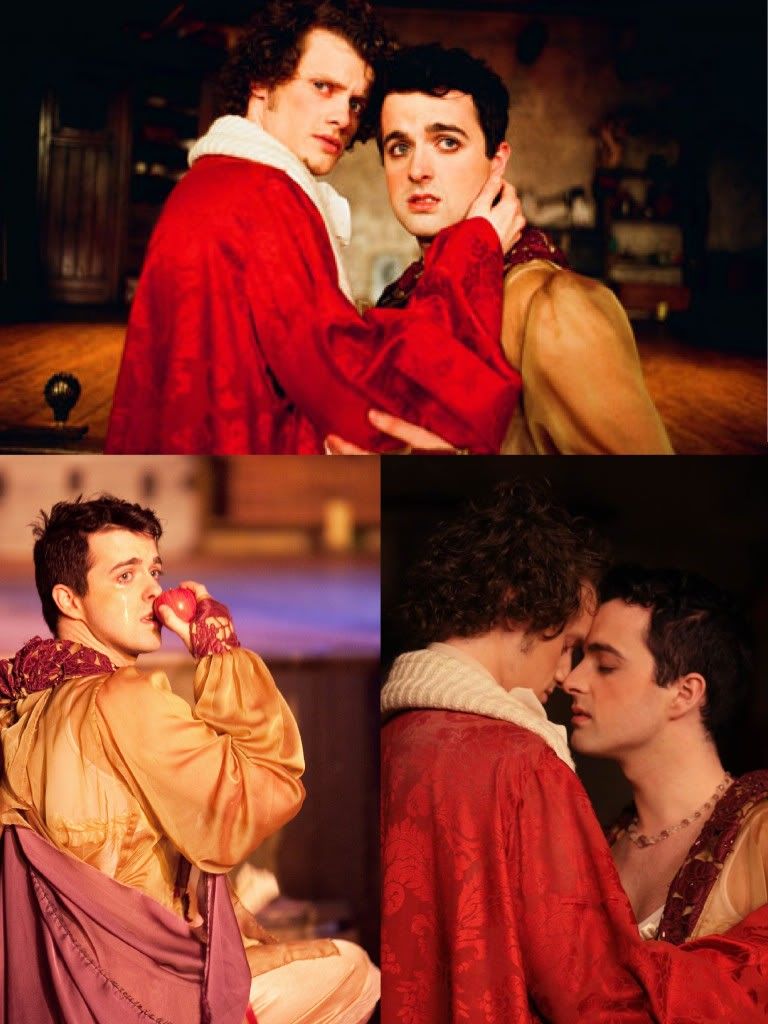In the end I fell in love with Wilton’s just as much as I had fallen in love with Iolanthe. The old crumbling grandeur of the place is beautiful and seeped in history and there’s something wonderfully dusty and decrepit that suits the feel of this production perfectly. One of my favourite choices they have introduced is the framing choice that opens and closes the production, creating the idea that this is a play being put on by schoolboys - it worked well at the Union but, I think, works even better at Wilton’s as the schoolboys enter with torches illuminating sections of the crumbling paintwork.
This choice gives a lovely aesthetic to the piece, with its thrown together costumes and sets, the fairies wings created from old ping pong table nets or hockey walking sticks or forests of trees created with umbrellas. The reason I love it so much is that it evokes both a sense of nostalgia and of that childish wonder of exploration, playfulness, adventure, glee and imagination. I really can’t imagine anything better for this operetta. It makes everything feel wondrous and magical from the moment the lights rise and reveal Kingsley Hall performing a beautiful fairy dance.
The playfulness also allows us to buy completely into the utter silliness of the story, the idea that it is make believe is very freeing. Though it also helps that the cast seem to be having a huge amount of fun, which spreads through the entire audience and the whole thing seems very inclusive. One final thing I love about this framing device, is making the entirely male cast schoolboys both adds innocence to the relationships between the characters, but also adds an element of explorativeness to it, these are boys learning about themselves, giving its queer themes a much deeper resonance and beauty.
Alright, that’s enough joyful exuberance about their framing, back to the transfer itself. I think it’s always a difficulty with return visits, especially when changes to setting and casting have taken place, that some things will work better and others may feel disappointing. As an audience member it’s almost impossible not to keep up constant mental comparisons and just lose yourself in the story again. I won’t go into too much detail, especially as Ought To Be Clowns has already said nearly everything I wish to much more eloquently than I can manage. But there were places where the new staging had greatly enriched the production, the choreography for example was given much more scope with the bigger stage and the greater control over the image the audience saw lent a much grander feel to the proceedings; others I felt had lost focus and impact (for example the scene between Mountaratat and Tollolloler felt far too set back on the stage for me) and, of course, moments where I missed the intimacy of the Union (I particularly missed the actors popping up behind us to sing in our ears).
Similarly the new casting had a mixed affect for me – I really liked the cocky swagger of Louis Maskell’s Strephon, but missed Kingsley Halls Mountaratat and Kris Manuel’s Fairy Queen (I could never resist a Geordie). This though, I think isn’t necessarily down to ability or quality of performance, especially as both their replacements, Luke Fredericks and Alex Weatherhill were excellent. It’s more a lingering fondness for the people you initially created an audience-actor relationship with.
Certainly these changes hadn’t led to any reduction in the quality of performances, which are superb throughout. The fairies are completely irresistible, right from that first dance and the moment when they blew glitter at the audience – through their excellent dancing, to their silliness (hiding beneath books and in chests for example), and in the arch mockery combined with love and warmth they showed for each other. Though I must admit I did miss their shuttlecocks.
The lords were equally excellent and similarly silly, with “When Britain really ruled the waves...” a highlight of the show due to its excellent choreography. Shaun McCourt emerged as a particular favourite managing to perfectly enunciate the rapid patter of the Lord Chancellor and exceedingly touching in his late scenes with Iolanthe, though I also greatly enjoyed Raymond Tait as Private Willis. Really though this production belongs to the “girls” of the cast – Alan Richardson as Phyllis and, especially, Christopher Finn’s Iolanthe who was entrancing throughout and gave a stunning emotional performance which brought tears to my own eyes.
Joyfully exuberant, silly, moving and suffused with wonder I can scarcely think of a better place to spend a few hours or a better cast to spend them with. So much so, that I almost immediately booked to see it again before the end of the run.
And one extra. Shhh.... (well they were my favourites)


No comments:
Post a Comment